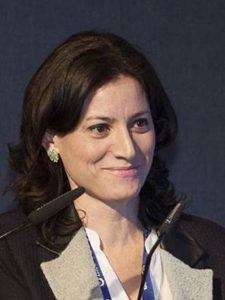
Cristina Peris MD, PhD
Spain ranks highest among European countries for total COVID-19 cases. Cristina Peris MD, PhD, answered questions about the effect of the pandemic on ophthalmology care, training, and research. Dr Peris is Medical Director, FISABIO Oftlamología Médica-FOM, a public health centre in Valencia.
How is the pandemic affecting ophthalmology practice?
Services have been reduced to emergency care. At my centre, which is solely an ophthalmological hospital, we have been able to attend in person to all of our emergencies and to cases referred from other hospitals that became dedicated to COVID-19 patient care.
So as not to neglect the needs of other patients but avoid unnecessary personal interactions, we had to sharpen our ingenuity and adapt to the new situation in record time. Consultations with other patients are being handled by telephone or video conferencing.
What are your concerns about the impact on patients?
My biggest concern relates to our inability to physically attend to patients with pathologies that cause irreversible blindness. Most patients with these conditions are very vulnerable to COVID-19 because of age or comorbidities, and we believe many have been afraid to come for care or have no one to bring them. Other elderly patients are in nursing homes and because ophthalmologic urgency is not treated as a vital problem, they do not get to consultation. Unfortunately, it is in this last group where COVID-19 has been the most devastating in Spain.
How is the pandemic affecting students and research?
Trainees have suffered a tremendous shock, but they are probably more adaptable because they are young. Many residents have been on the front line at emergency services, and they will benefit from this new role both from a scientific-technical perspective and in developing ethical values.
The entry of trainees from other areas in Spain and Europe into clinical rotations was suspended. Residents in their last year of training will be certified as an ophthalmology specialist in May. While they had to finish training online, they had more time to work on other projects, such as scientific papers and doctoral theses.
Successful research requires a large and ongoing economic investment. While I fear there will be neither sufficient funds nor the culture to support research in the future, I hope the pandemic will bring focus on the importance of investing in health, research, and education.
What is the future of ophthalmology in Spain after COVID-19?
The pandemic led us into pilot studies of new models for patient care, teaching, and research that we will have to validate in the future. I think we have learned that some care can be delivered without traditional face-to-face visits, but we must not overlook that some patients will always need close, friendly contact with their doctor, regardless of their pathology. The pandemic is also underlining the importance of artificial intelligence systems in our evaluations.

 Cristina Peris MD, PhD
Cristina Peris MD, PhD